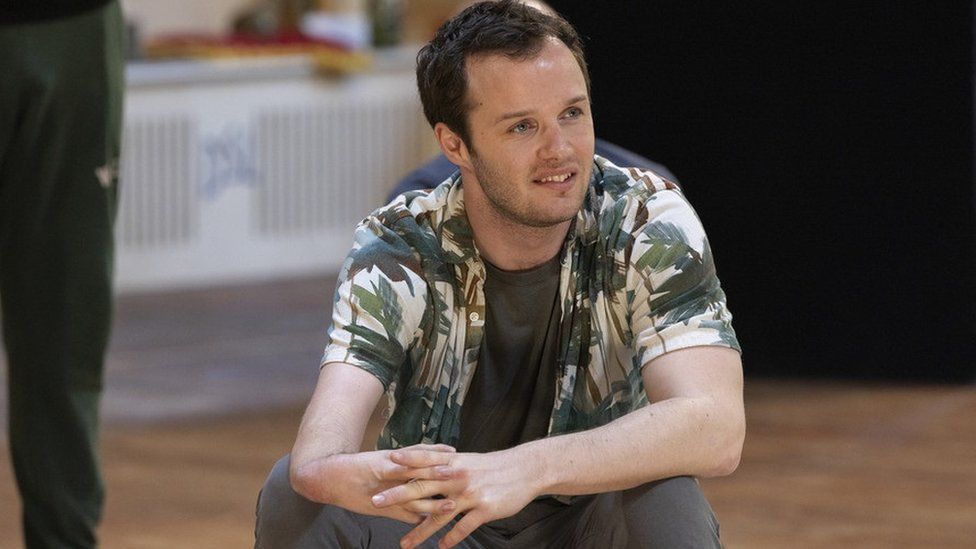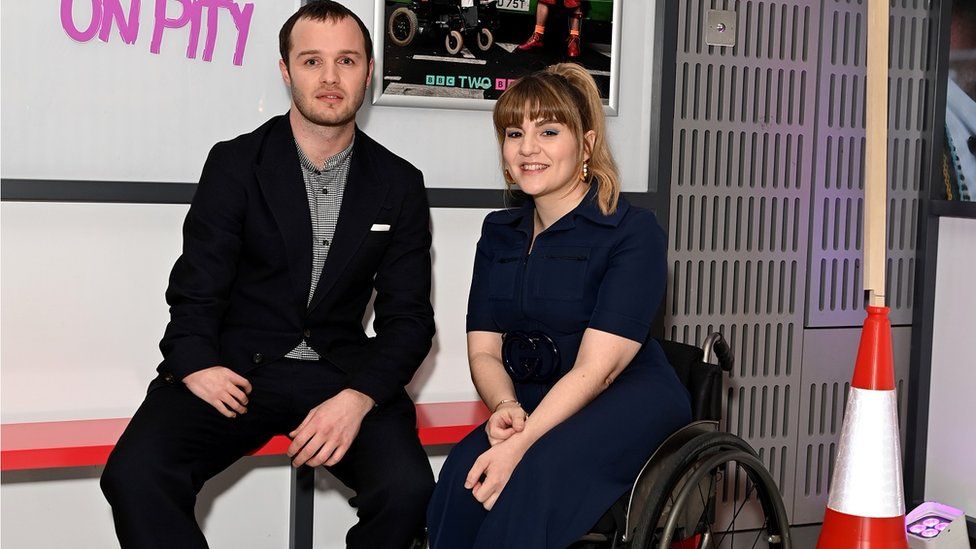Sir Antony Sher, Robert Lindsay, Ian Richardson and Christopher Plummer are only a couple of the quintessential entertainers to have assumed perhaps of the most valued part in English show, Shakespeare’s flavorfully fiendish Richard III.
Be that as it may, albeit the Machiavellian wannabe had scoliosis, a bended spine, none of the regarded entertainers to have played Richard at the Royal Shakespeare Company (RSC) has had an actual impedance themself.
The times of “cripping up” – a term incapacitated entertainers routinely use to portray those with no actual disability playing crippled characters – seem numbered now, however, with Arthur Hughes taking on the sought after job in the not so distant future.
He isn’t the principal impaired entertainer to do as such – Mat Fraser played Richard at Hull Truck, in 2017, and Daniel Monks took on the job in Dick at the Donmar, in 2019 – yet it is a first for the RSC.

Hughes is relishing the role of the duplicitous villain
“We want to have more debilitated Richards. This is a major signal from the RSC… treating handicap portrayal in a serious way,” Hughes says.
“Richard is perhaps of the most well known crippled character in the English language. I’ve for a long time needed to play him. I figure a ton of handicapped entertainers will think playing Richard is their inheritance.
“Each time a crippled entertainer plays Richard, it’s a significant stage for portrayal.”

Hughes starred with Ruth Madeley in Then Barbara Met Alan
Hughes is savoring the job of the tricky lowlife
Hughes, who has spiral dysplasia and recognizes as “appendage unique”, obviously can hardly hold back to get his teeth into apparently his most provoking job to date.
Since leaving show school, his experience of landing acting work has been generally sure, he tells BBC News, with jobs in plays, for example, One Flew Over the Cuckoo’s Nest, at Sheffield’s The Crucible, and Saint Joan, at London’s Donmar Warehouse.
His TV credits incorporate British Academy of Film and Television Arts (Bafta) grant winning Channel 4 show Help and Netflix’s The Innocents.
Hughes is at present going through the best groundwork for his impending job – playing a more youthful Richard in the RSC creation of War of the Roses.
Tune in: Arthur Hughes on BBC Sounds’ Access All webcast
Yet, the entertainer, from Buckinghamshire, was not generally so certain.
While at show school, in Wales, he noted “there was a sad point of reference” as far as handicapped entertainers he could gaze upward to.
Hughes featured with Ruth Madeley in Then Barbara Met Alan
“It wasn’t long after I graduated that I saw Ruth Madeley [who utilizes a wheelchair] in BBC One’s Years and Years,” he says. “Here was an entertainer with a handicap and nobody’s referring to it. It’s anything but a piece of the story. She is simply there.”
Recently, Hughes played a handicap rights campaigner in BBC Two’s Then Barbara Met Alan, inverse Madeley, who has spina bifida.
However, while he feels an obligation to assume parts where handicap becomes the dominant focal point, Hughes likewise needs to be found in creations where the person simply ends up having an actual debilitation.
“I believe it’s great to play those parts [where handicap is a vital piece of the role] but at the same time it’s really great for crippled entertainers to play characters where it’s coincidental and inability isn’t determined,” he says.
“That is the subsequent stage, where portrayal will be truly universal and strong. Handicap is clearly a significant piece of your character, however by all accounts not the only part.
“Why not have an impaired Macbeth?”
Othello disorder
Like the RSC’s active imaginative chief, Greg Doran, Hughes accepts “incapacitated characters ought to be played by handicapped entertainers”, with the times of those with no versatility hindrance slouched over a stick to depict Richard probably numbered.
“You don’t have white entertainers playing Othello any longer. Time has continued on,” he says.
Doran (left) disappeared from the RSC to really focus on spouse Sher (right) when he was in critical condition
Doran’s late spouse, Sir Antony Sher, played the job of Richard at the RSC back in 1984 – however last month the chief told the Times: “Tony’s presentation currently would likely not be satisfactory.
“It’s the Othello condition isn’t it? That second when white entertainers quit considering Othello in their collection, since it was not OK to have blackface any more, essentially until the level battleground is accomplished.
“It’s something similar with crippled entertainers and Richard.”
Entertainer Simon Callow, in a letter to the Times accordingly, differ over debilitated projecting, stating: “The theater is a gym of the creative mind. The two entertainers and crowds inspire them to think bigger there. Eliminate that component and you have a simple moving photo”.
The discussion seethes on however while chiefs can decide to move with the times, Shakespeare’s content will continuously be stuck somewhere near 1592.
‘Tanked on power’
In the play, Richard refers to himself as “I that am discourteously stepped… disfigured, incomplete, sent before my time”.
How did Hughes deal with the language?
“I’ve expressed straightforwardly in the practice room that when we are talking, we need to make a genuine differentiation with the language we use and the language that is utilized in the play – on the grounds that it is terrible. We put a ban on the word ‘disfigurement’ except if it was in the text,” he says.
Matthew Duckett, who plays Catesby, one of Richard’s acolytes, is additionally debilitated.
“We have two crippled individuals in the room. We should be open about this… furthermore, simply make it protected, that we know the standards. Yet, you want handicapped voices in the space to do that,” Hughes says.
What’s more, having an actual weakness carries a comprehension to the job an entertainer without one would never have.
“Not frequently, yet individuals can pass judgment on me, or I will be gazed at or underrated… furthermore, perhaps categorized. It is imbued in certain individuals that there is an order and assuming that you are impaired you are at the lower end of that progressive system. Everything, Richard encounters,” Hughes says.
“To draw on that is something else to assembling it, to putting on a protuberance and a limp.
“It’s a debilitated body in front of an audience playing Richard. Right away, the work is finished. I comprehend what it is to be in this body.”
Furthermore, Richard makes his actual hindrance advantageous for him.
“Individuals can’t nail him down. All through the play, he bargains in tales, lies, tattle, trickery, and to live as this abnormal changing shadow is valuable to him,” Hughes says.
“He’s current external this general public that doesn’t completely acknowledge him. Furthermore, that is where I think he pursues the choice, ‘On the off chance that I won’t be acknowledged in the public arena, I should play by my own standards. Assuming that these are the guidelines of this club, I would rather not be in it.'”
Simultaneously, there are numerous different parts of Richard’s character and inspirations Hughes is anticipating exhibiting.
“The principal character might be crippled yet a seriously enticing aspect concerning the play is the ascent of a dictator, somebody who needs power yet isn’t good for it,” he says.
“About pioneers are terrifying and distrustful and intoxicated on power and will do anything to… keep it. That is the immortal thing about this play.”